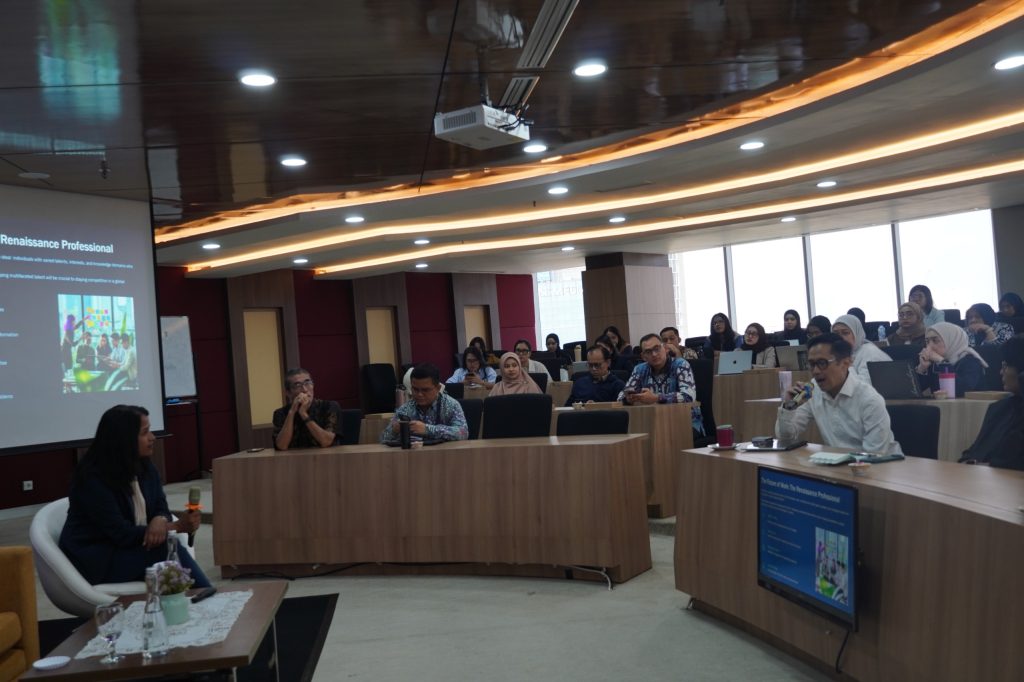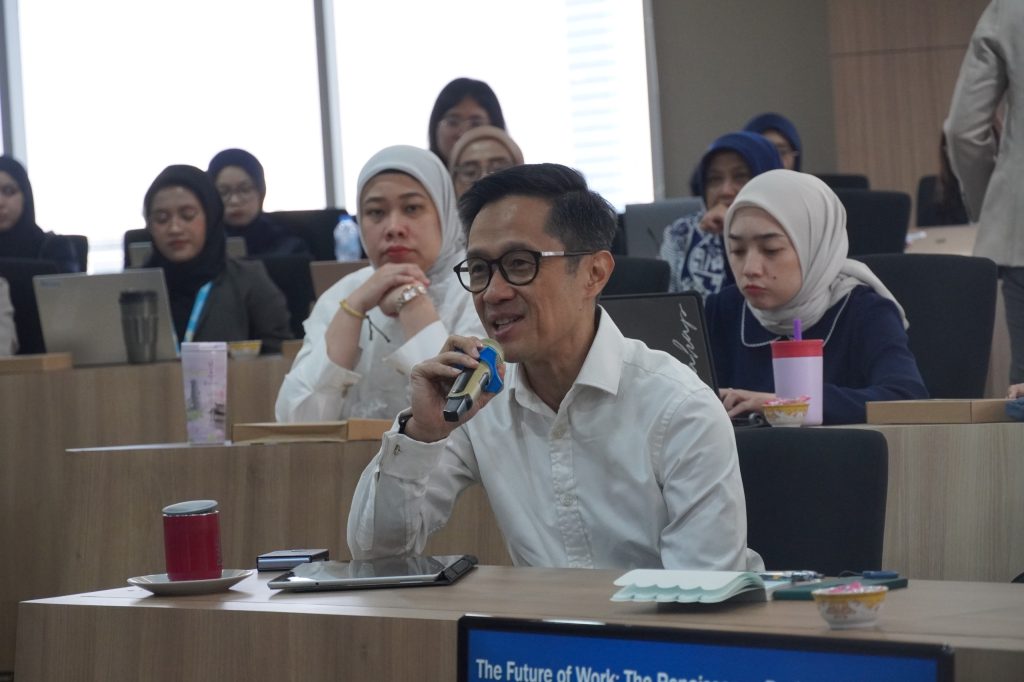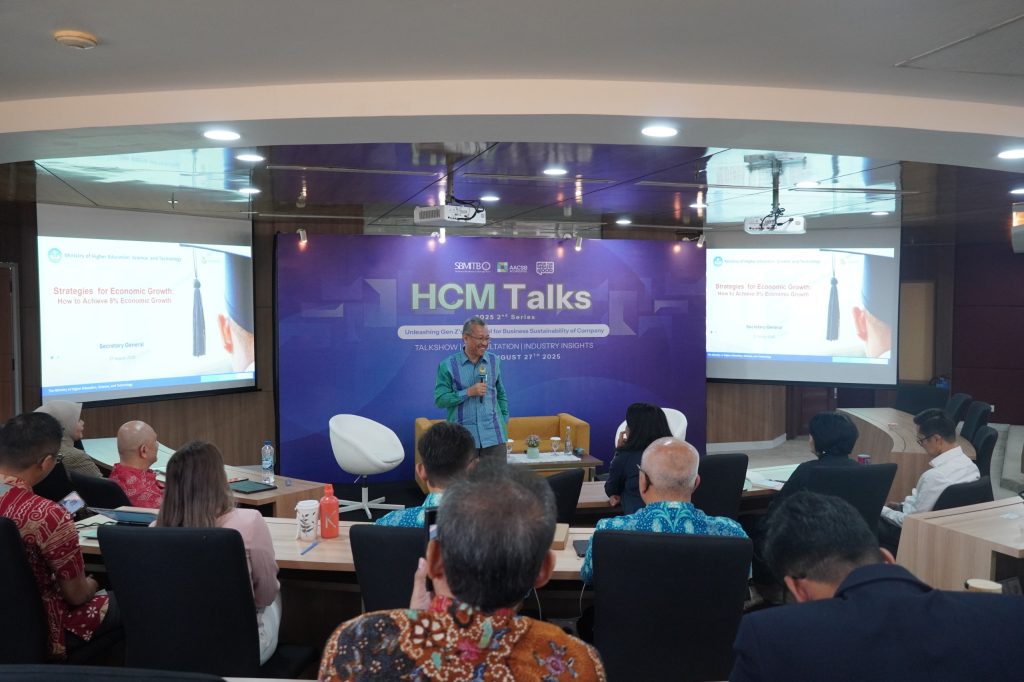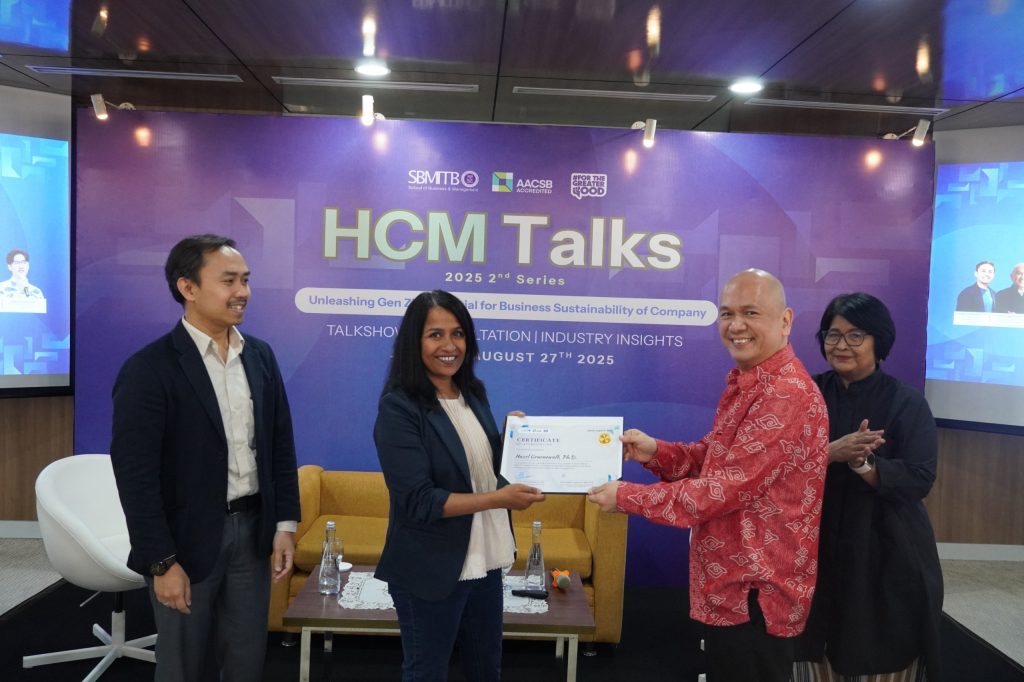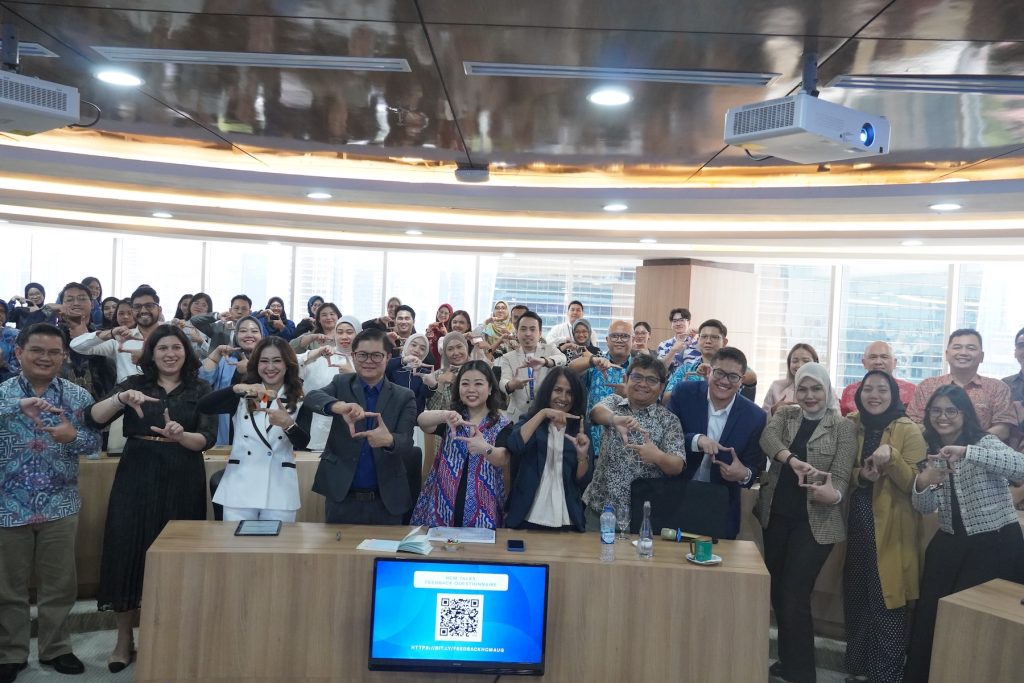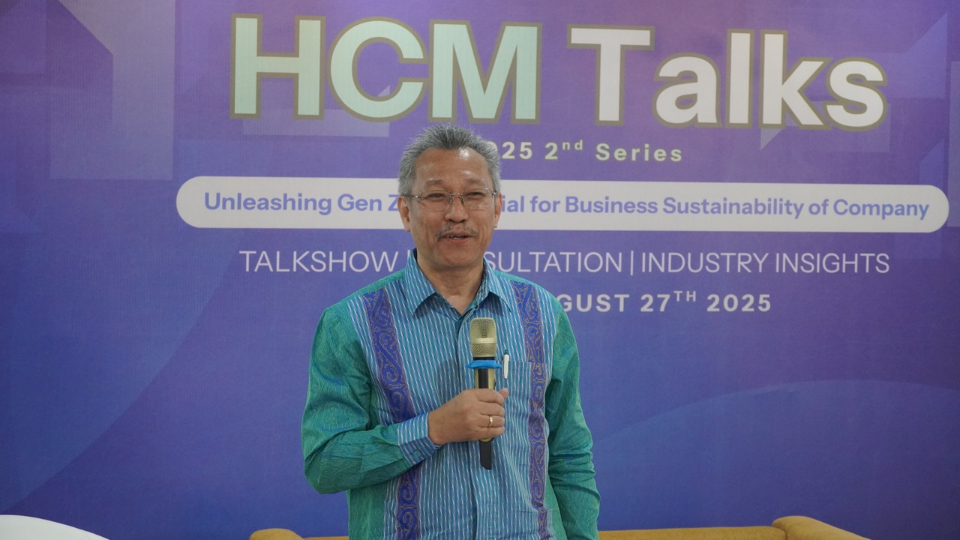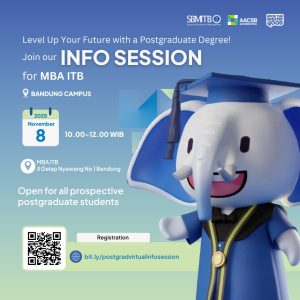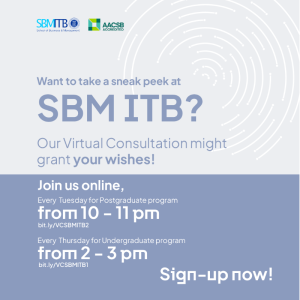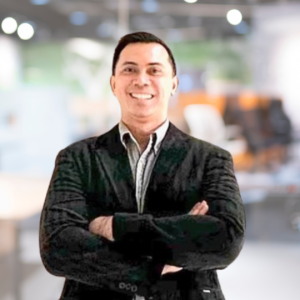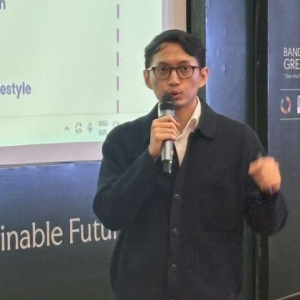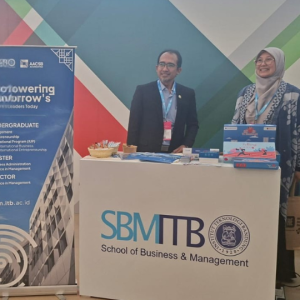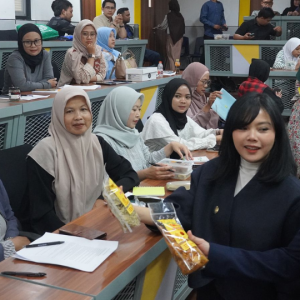The SBM ITB, successfully held the second series of HCM Talks 2025, collaborating with various industry partners to connect practitioners and academics in Bandung (August 27). The event, themed “Unleashing Gen Z’s Potential for Business Sustainability of Companies,” included talk shows, consultations, and industry insights.
The event was opened by the Secretary General of the Ministry of Education, Culture, Research, and Technology and SBM ITB Professor, Prof. Ir. Togar Mangihut Simatupang, who presented Indonesia’s vision for 8 percent economic growth. He highlighted the challenges faced by Indonesia, which has been in the middle-income trap for 30 years, with economic growth slowing to an average of 4.88% from 2000 to 2024.
“To achieve 8% growth, we need to double our added value by strengthening industrial transformation in 2025–2029, including accelerating transformation, global expansion, and capitalizing on the momentum of Indonesia Emas 2045, especially in the manufacturing sector,” said Prof. Togar.
The HCM Talks were organized into three main sessions, along with an icebreaker session hosted by Populix. The first session was themed “Building a Purpose-Driven Work Culture for Gen Z Engagement,” and featured Prof. Hazel Gruenewald from Germany. Hazel emphasized that Generation Z is not lazy in the workplace; rather, they prioritize meaningful work that focuses on ethics, well-being, and a purpose-driven work culture.
Hazel also recommended that companies instill authenticity, inclusion, flexibility, and opportunities for self-development so that Gen Z can thrive, innovate, and remain in companies that align with their values.
The second session, themed “The Power of Gen Z: Distinctive Strength: Future Leaders,” highlighted the importance of changing stereotypes about Gen Z in the workplace. Unilever Indonesia’s Human Capital Director, Willy Sarlan, emphasized that Gen Z dares to ask questions, seeks meaning, and is impact-oriented. Companies need to provide opportunities for empowerment, responsibility, and meaning in their work so that Gen Z can develop into good leaders.
Dr. Ir. Yuni Ros Bangun, a lecturer at SBM ITB, praised Unilever for being a preferred employer among Gen Z. She highlighted the company’s commitment to developing leadership skills in all employees as a key factor in their success. This example demonstrates how companies can adapt their work culture to maximize the potential of the new generation.
The third session, titled “Managing Gen Z & National Resilience: Preserving Identity, Shaping the Future,” featured speakers Dirgayuza Setiawan and Lanny Wijaya. The discussion began with a presentation on the role of technology, artificial intelligence (AI), as well as the importance of soft skills, hard skills, and green skills in addressing the challenges of the future workplace.
Both emphasized the importance of T-shaped professional development and the adoption of a growth mindset. With this approach, Generation Z can thrive, innovate, and remain relevant in an ever-changing industry, while also being prepared to face the demands of cross-generational collaboration.
Through these HCM Talks, SBM ITB aims to inspire participants not only to attend but also to engage actively, take initiative, and become essential contributors to development and innovation within their organizations. In this way, the knowledge and insights gained can be directly applied to address the challenges of a dynamic workplace.
